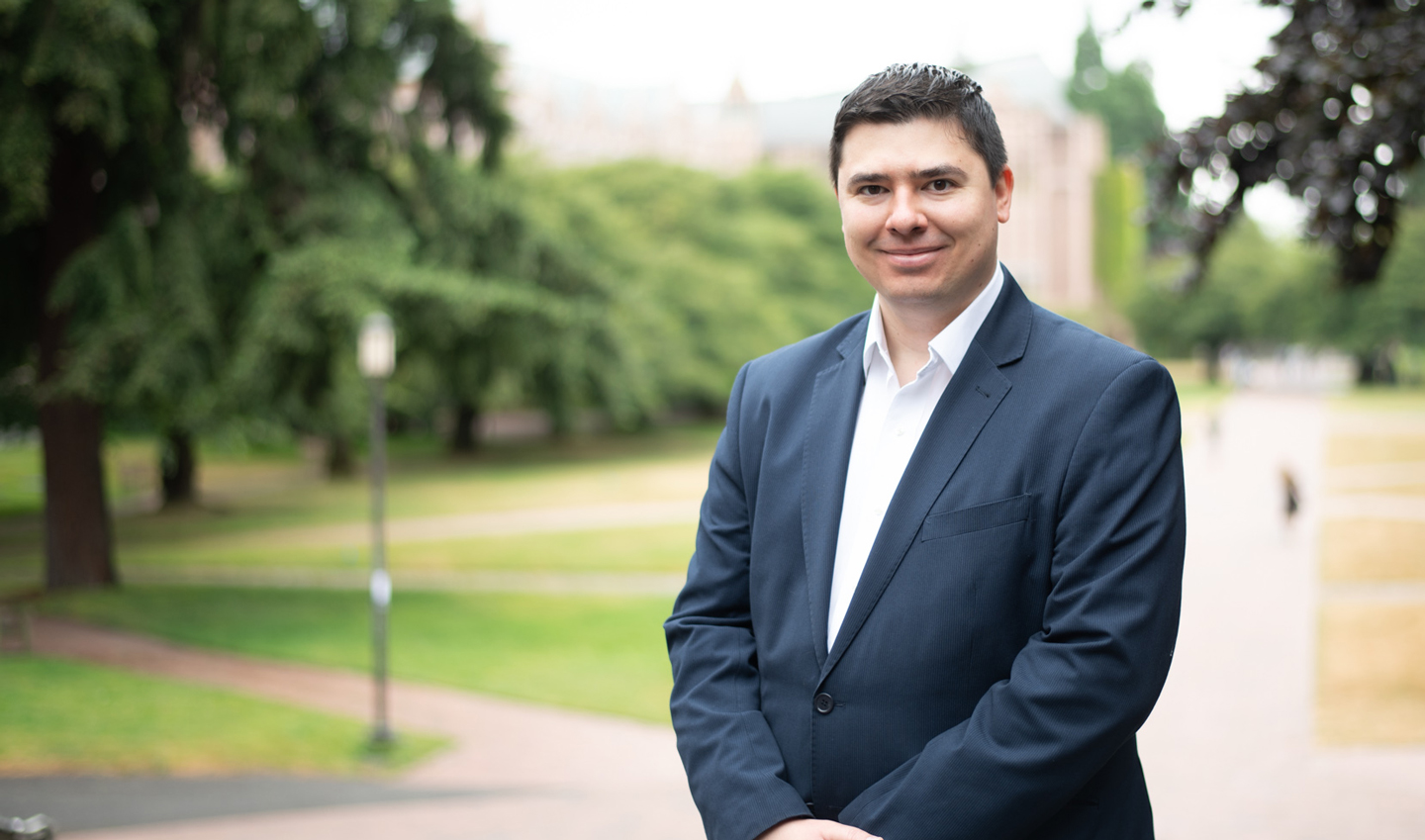Inventors who are women received just 13% of all patents awarded in 2019 in the U.S., a disparity seen around the world.
What can be done about it? Mike Teodorescu asked that very question. Most inventors on their first try at a patent receive a rejection letter filled with legal jargon. Many abandon their attempt at that point.
Teodorescu and his colleagues found that inventors who receive a simple phone call explaining their options have vastly better chances of successfully obtaining a patent. For women, the odds increase by 29%.
Teodorescu isn’t a patent attorney. He’s a researcher whose sense of curiosity has led him to study a wide number of topics, from space stations to medical equipment to informing public policy on the patent process.
This fall, Teodorescu brings this inquisitiveness to the University of Washington’s Information School, as an assistant professor.
Generally, academics study one subject intensely. But Teodorescu found the iSchool to be open-minded about “studying things that you’re passionate about.”
Teodorescu will start by teaching two data-science courses for the iSchool’s Master of Science in Information Management program. He’ll also recruit Ph.D. students for 2023-24 to assist with his current research areas — machine-learning fairness, innovation economics and biomedical engineering.
Teodorescu has a strong technical knowledge and breadth of understanding bolstered by his interests, said Dan Frey, a Massachusetts Institute of Technology mechanical engineering professor. They collaborated on a medical startup, and later, on a U.S. Agency for International Development-supported project studying fairness of machine-learning implementations in emerging economies.
“When he talks about a subject, he doesn't just stick to the script,” Frey said. “He can go off and tell a story about some engagement that he had and he never would've had those experiences if it weren't for his natural curiosity. It's really made him a stronger teacher.”
Teodorescu grew up in Iași, a university-filled city in Romania founded in the 14th century. In high school, he placed three times, including two grand prizes, in 2003, 2004 and 2005 in the worldwide National Space Society Space Settlement Contest sponsored by NASA.
Two of the years, Teodorescu traveled to NASA’s Ames Research Center in California. Those visits led him to decide to go to college in America. In 2007, he started his undergraduate career at Harvard, majoring in computer science after taking CS 50, one of the university’s most popular classes.
As an undergraduate, Teodorescu interned at Microsoft’s Redmond campus. After graduating in 2011, Teodorescu worked at the Microsoft New England Research and Development Center to be closer to his wife, Debbie, who was attending Harvard Medical School.
After two years, Teodorescu left to pursue his doctoral studies at Harvard Business School. He was interested in business strategy, curious about such things as why companies invest in research, move a headquarters or open a subsidiary.
This was more than a theoretical interest. He and his wife launched SurgiBox together after the Haiti earthquake in 2010, which killed hundreds of thousands and forced surgeons to operate outdoors, greatly increasing chances for infections.
The startup has developed an inflatable, battery-powered “operating room in a backpack” that can be opened and draped like a sleeping bag over a patient, creating a sterile surgical environment. They have partnered with governmental and private entities around the world to help improve access to safe surgery in disasters.
At SurgiBox and beyond, Teodorescu has an interest in patents, having been awarded four with many others pending. Given his passion for patents, his dissertation chair, Tarun Khanna, connected him with the U.S. Patent Office’s chief economist, with whose group Teodorescu did research on how to encourage entrepreneurism, bolster green technology and level the playing field in patent granting.
After he obtained his doctorate from Harvard Business School in 2018, Teodorescu was hired to teach in Boston College’s Information Systems Department. He also collaborated with Frey to develop an MIT open course on machine learning fairness.
This summer, his research on improving the gender disparity in patenting was the runner-up for Academy of Management Annual Meeting Technology and Innovation Management’s (TIM) Best Paper, and his paper on improving outcomes for lower resource inventors won the TIM Best Paper at the same conference. He wrote both with coauthors including the patent office's chief economist, a supervisory patent examiner, and a professor in Paris.
Teodorescu is thrilled to be moving back to Washington state, and especially to meet faculty and students at the iSchool.
“They have a very collaborative environment,” Teodorescu said. “I thought it was fascinating that you can have computer scientists, human-computer-interaction philosophers and management people, all under the same umbrella of the school, coexisting happily and doing impactful research together.”
